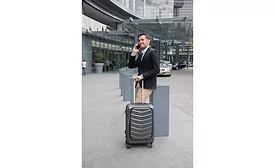Home » duty of care
Articles Tagged with ''duty of care''
Ensuring Duty of Care for Traveling Employees
Traveling for executives and employees is more challenging than ever with an evolving threat landscape.
September 4, 2019
Sign-up to receive top management & result-driven techniques in the industry.
Join over 20,000+ industry leaders who receive our premium content.
SIGN UP TODAY!Copyright ©2026. All Rights Reserved BNP Media.
Design, CMS, Hosting & Web Development :: ePublishing













